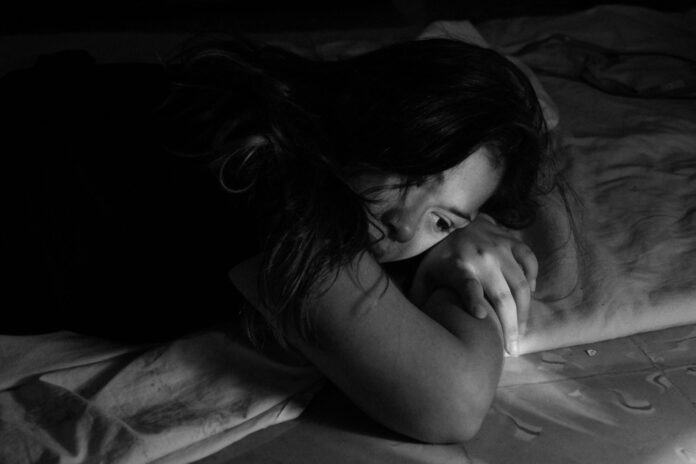By: Nicole Tammelleo
Publisher: Zencare
Date: NA
Many people don’t realize that October is Domestic Violence Awareness month. There are no pink ribbons or huge media campaigns asking for donations; it is a silent epidemic that affects everyone in some way.
Domestic violence affects not just the survivors of abuse, but our society as a whole. In the United States, 1 in 3 women and 1 in 7 men are victims of relationship abuse. Domestic violence (DV), also called intimate partner violence (IPV), domestic abuse, or relationship abuse is a pattern of behaviors used by one partner to maintain power and control over another partner in an intimate relationship.
Below are some warning signs of an abusive relationship, what to do if you feel you may be in one, and how to seek support.

Warning signs of domestic violence
Here are some of the many warning signs of an abusive partner:
- Extreme and constant jealousy
- Possessiveness
- Unpredictability
- Explosive temper
- Extremely controlling behavior
- Gaslighting
- Blaming the victim for everything
- Sabotage or obstruction of the victim’s ability to work or attend school
- Controls all the finances
- Accusations of the victim flirting with others or having an affair
- Control of what the victim wears and how they act
- Demeaning the victim either privately or publicly
Types of domestic violence
The major misconception about domestic violence is that it is only physical abuse, like hitting, slapping or choking; however, that is just one form of DV.
Forms of domestic violence include:
- Physical abuse
- Emotional abuse
- Psychological abuse
- Sexual abuse
- Financial abuse
Domestic violence does not discriminate. It happens regardless of gender, age, sexual orientation, race or economic background.
The following image, known as the “Power and Control Wheel,” helps explain the numerous ways domestic abuse can be perpetrated.
If something in a relationship does not feel right, it probably is not. Abuse is not an argument every now and then where cruel words are exchanged by both partners. It is constant and deliberate behavior by one partner to obtain all power and control over their partner.
Organizations like https://www.thehotline.org/, https://www.loveisrespect.org/ and https://ncadv.org/can provide in depth definitions of abuse, and also have hotlines to speak with a trained specialist who can talk to you about your situation and provide further resources.
Why it’s so hard to leave an abusive relationship
Leaving an abusive relationship is never easy. In most cases the person abusing you is someone you love and care about, and at some point there were many positive aspects of the relationship.
Most abusive relationships have what is called the “cycle of abuse” which continues over and over again. The following diagram explains the cycle, and how it is easy to get caught in this pattern over and over again.
How to leave an abusive relationship
If you are thinking of leaving an abusive relationship, it’s important to build a safety plan, whether you are living with your abuser or not.
Leaving is never easy, and often infuriates the abuser. They often promise they will change, and emotionally manipulate their partner into staying.
Abusers may also say things like “Nobody will ever want you but me,” or “This is all your fault. You make me act like this.”
Unfortunately, after hearing these abusive remarks over and over again you may have started to believe them. Try to be strong, and remember the abuse is not your fault, and you can and will be wanted and loved.
Planning a safe way to leave a relationship will help give you confidence and structure.
Safety plan for leaving an abusive relationship:
- Let a friend or family member know you are ending your relationship. Even if you don’t want to tell your friend or family member about the abuse, let them know you are ending your relationship, and need emotional support. Let them know when and where you are ending the relationship, and ask them to check in on you.
- Call a hotline. If you are uncomfortable talking with someone you know, call one of the hotlines and speak with someone who will encourage and support you.
- Keep important documents safe. This includes your passport, birth certificate, health insurance card etc, and those of your children. Keep these in a safe space, preferably out of the home.
- Find a safe place to go, even for a few nights
- Call 911 if your partner hurts you, threatens to hurt you, or threatens to hurt themselves
- Memorize a few emergency contact numbers, in case you leave without your phone.
- Change passwords on electronic devices and social media, as your partner may know your passwords.
- Block your partner from calling or texting you. You may need to be in touch again, but it is best to stop communication right after leaving.
- Prepare emergency funds. This can include emergency money and your own bank account or credit card if possible
- Remind yourself that you do not deserve to be abused. Write down in a journal or somewhere safe why you are important and do not deserve to be abused. Read and reread this to give you strength.
If you believe you are in an abusive relationship, you can get the help and support you need.

Healing from an abusive relationship
Healing from an abusive relationship can be a difficult process. For many, it entails coming to terms with the reality of the relationship, healing from trauma, and regaining self-love and confidence.
Support is out there, including:
- Support groups for victims of domestic violence, which offer not only a therapeutic healing space, but also an opportunity for survivors tell their story to others who can understand and relate. Most victims have been so isolated during the abuse that they need to reconnect with others, and a supportive group of peers is a great place to start.
- Hotlines: Organizations like thehotline.org, loveisrespect.org, and National Coalition Against Domestic Violence (NCADV) offer hotlines to speak with a trained specialist who can talk to you about your situation and provide further resources.
- Therapy: Therapy can help both individuals currently in abusive relationships as well as survivors of domestic violence.
How therapy can help if you are in an abusive relationship
Therapy can provide many supports for survivors of abusive relationships in many ways:
- Education on relationship abuse
- Learning to differentiate abusive vs. healthy relationships
- Treatment for mental health conditions that result from an abusive relationship
- Rebuilding one’s sense of self and self-worth
- A safe space to share scary experiences and feelings of shame
For individuals in abusive relationships, a therapist can provide psychoeducation on relationship abuse, provide a safe and non judgemental space to talk about experiences, and help in connecting them with the help and support they need to leave the relationship.
The reality is that some individuals may not know what a healthy relationship looks like, perhaps from growing up in an environment where abuse was common, and they may not recognize that their relationship is unhealthy. Therapy can help individuals differentiate what an abusive versus healthy relationship looks like, and help them understand that they do not deserve to be abused in any situation.
Survivors of domestic violence often suffer from mental health conditions such as anxiety, depression, low self-worth, and have symptoms of post-traumatic stress disorder, or PTSD. It is very hard for a survivor to be able to trust others, and therapy can help rebuild their sense of self. Many survivors suffer with intense feelings of shame, and do not want to open up to friends and family for fear of judgment.

What to look for in a therapist for help with domestic violence
In looking for a therapist, find someone who understands that domestic violence is about power and control, and has a background working with victims and survivors of DV. In addition, they should have a trauma-informed approach to therapy.
Some individuals think that couples therapy is the answer to domestic violence; however couples therapy is not recommended while the abuse is active. Victims need a safe place for themselves to be as candid and open as possible, and this is not possible with the abuser in the same space.
Love is not about power and control. Everyone deserves a healthy relationship. However, you might not be sure exactly what that looks like, or need help healing after being in an abusive relationship. It can be hard to talk about abuse, as nobody wants to think of themselves as a victim.
Please know that you are not alone, and there is help.
Source: https://blog.zencare.co/how-to-safely-leave-an-abusive-relationship/
Comment: I chose this article, because it specifically addresses how to leave a toxic relationship. There are even things I would have not considered such as paperwork that may be necessary during the break up. This article also does a nice job of showing the signs to look for that may indicate a relationship is abusive along with giving others who are not in a toxic relationship perspective on what its like to be in one. This knowledge would not only support individuals suffering in an abusive relationship, but also give those outside one perspective on how hard it can be to be in one.




